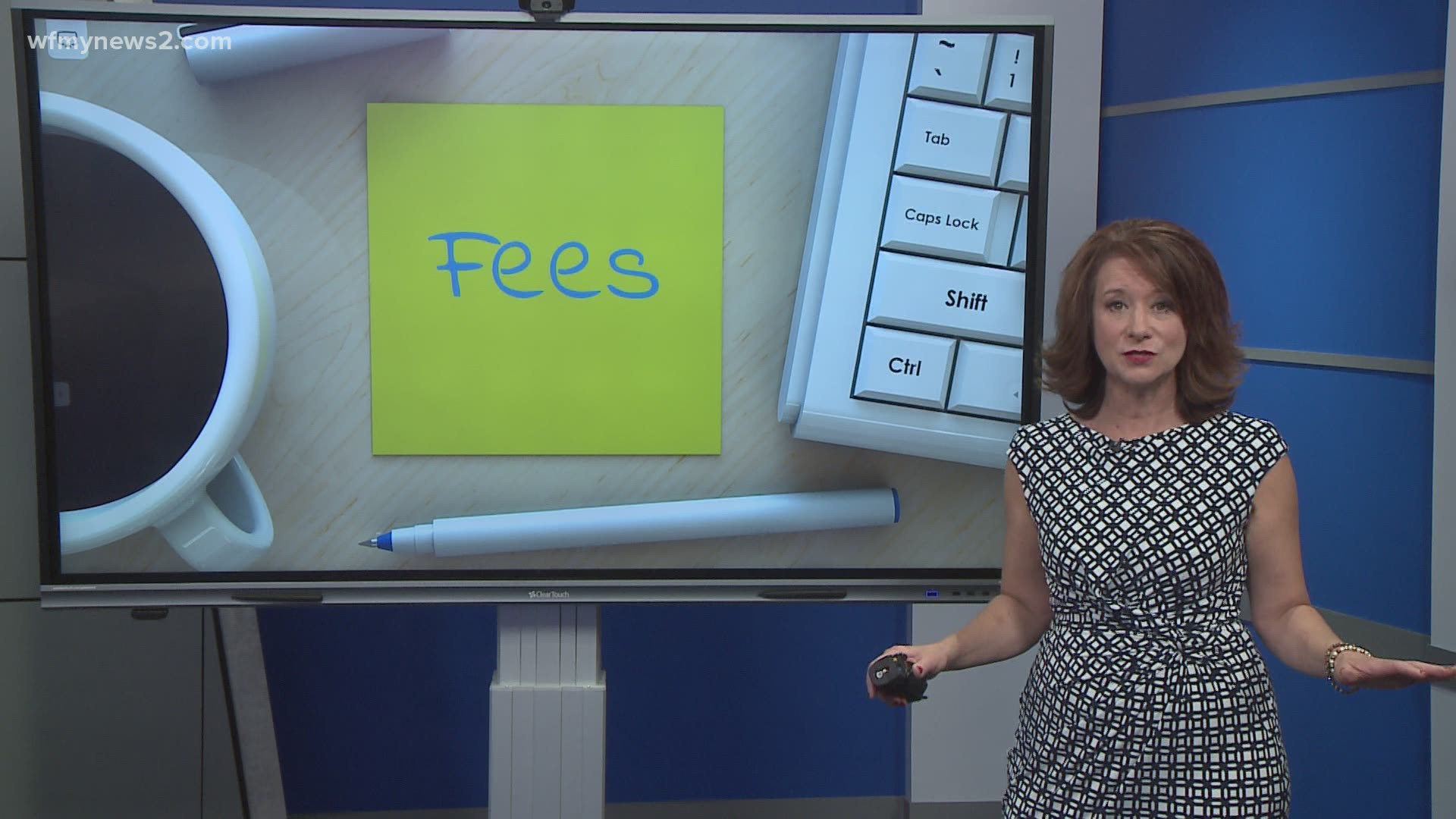GREENSBORO, N.C. — You put your money in the bank. It allows you to get direct deposit for your paycheck, set up bill pay, write checks, etc. Your bank provides you service and some of the services are free, but not all of it.
Business Insider put together the top 12 banking fees and how to avoid them. On the list, everything from monthly service fees, ATM fees, overdraft, insufficient funds, excess transactions, and on it goes.
A 2 Wants To Know viewer had a question about fees. Lydia said:
I noticed my bank started withdrawing $10 from my account in February.
It said "return mail fee" on my mobile banking statement. I don't know if it's legitimate and I couldn't get an answer by going to my bank. But the fee is being deducted each month.
2WTK went straight to the bank's website to find the list of fees and there was a Return Mail Fee at $10 per month, but no description. While on the website, 2WTK started a webchat and found that the Return Mail Fee is assessed when ‘you have your statement sent out to you by mail and the post office delivers it back as undeliverable'.
The customer service rep suggested Lydia needed to contact them and update the address, or in this case, simply stop the paper statements.
The bank credited her all those return mail fees. But this is a good reminder for all of us to question fees on any bill.
What to know about store credit cards
Typically, the interest rates on store credit cards are higher than a regular credit card. For example, the APR, annual percentage rate, of a TJ Maxx card is 26.99%. A COSTCO Anywhere VISA card has an APR of 15.24%.
Credit card Insider surveyed shoppers to see what payment methods people use most.
57% use credit cards
34% use their debit card
Credit Cards
One of the hardest things for credit card users to overcome is the interest rate on their card. Depending on the card company, those interest rates could be pretty high. But there is a way to bring those interest rates down to zero percent---a balance transfer.
When used responsibly, balance transfers can be a great way to reduce the amount of interest you’re charged as you pay off debt. Meaning, you must make all payments on time. Credit Card Insider has a full list of the cards that a best for a balance transfer.
Remember, it is okay to own multiple credit cards as long as you are able to keep up with them. But after you pay them off, don't close the account because it could negatively affect your credit score.

